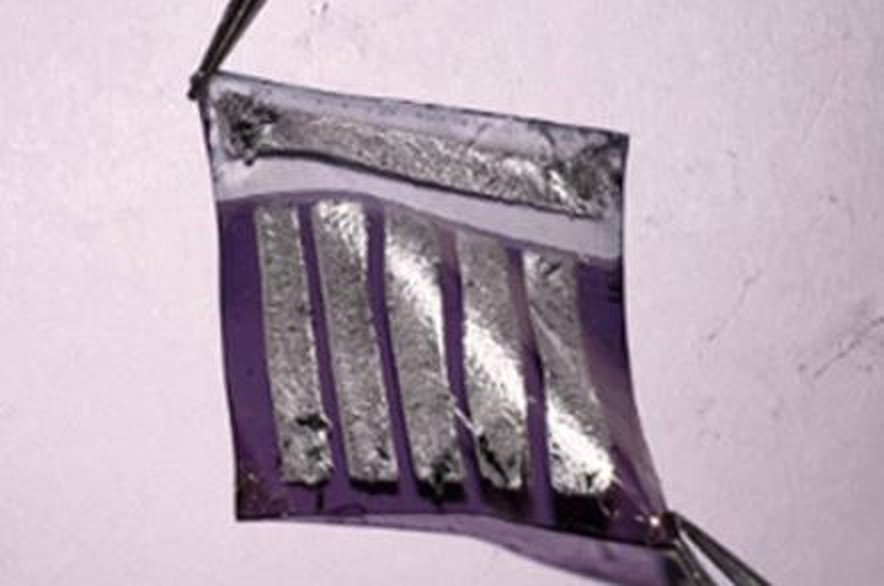KAIST researchers said in a recent statement that they have developed the world’s highest-performing stretchable solar cells. They can be stretched up to 40% during operation, with a conversion efficiency of 19%.
“The team conjugated a highly stretchable polymer to an electrically conductive polymer with excellent electrical properties through chemical bonding and developed a new conductive polymer with electrical conductivity and mechanical stretchability,” the researchers said. “It meets the highest reported level of photovoltaic conversion efficiency (19%) using organic solar cells while also showing ten times the stretchability of existing devices.”
They presented the tech in “Rigid and Soft Block-Copolymerized Conjugated Polymers Enable High-Performance Intrinsically-Stretchable Organic Solar Cells,” which was recently published on Joule. The tech was developed with conjugated polymer donors (PDs) consisting of electroactive rigid and soft blocks.
Popular content
“We use rigid D18 and soft PEHDT blocks to synthesize block-copolymerized PDs (D180.8-s-PEHDT0.2), which offer high electrical properties and mechanical stretchability,” the scientists said. “The D180.8-s-PEHDT0.2-organic solar cells (OSCs) excel beyond their D18- and PEHDT-based OSC counterparts by overcoming the traditional power conversion efficiency-stretchability trade-off.”
The research team was led by Prof. Bumjoon Kim from KAIST’s Department of Chemical and Biomolecular Engineering.
“Through this research, we not only developed the world’s best performing stretchable organic solar cell, but it is also significant that we developed a new polymer that can be applicable as a base material for various electronic devices that need to be malleable and/or elastic,” said Kim.
This content is protected by copyright and may not be reused. If you want to cooperate with us and would like to reuse some of our content, please contact: editors@pv-magazine.com.


3 comments
By submitting this form you agree to pv magazine using your data for the purposes of publishing your comment.
Your personal data will only be disclosed or otherwise transmitted to third parties for the purposes of spam filtering or if this is necessary for technical maintenance of the website. Any other transfer to third parties will not take place unless this is justified on the basis of applicable data protection regulations or if pv magazine is legally obliged to do so.
You may revoke this consent at any time with effect for the future, in which case your personal data will be deleted immediately. Otherwise, your data will be deleted if pv magazine has processed your request or the purpose of data storage is fulfilled.
Further information on data privacy can be found in our Data Protection Policy.